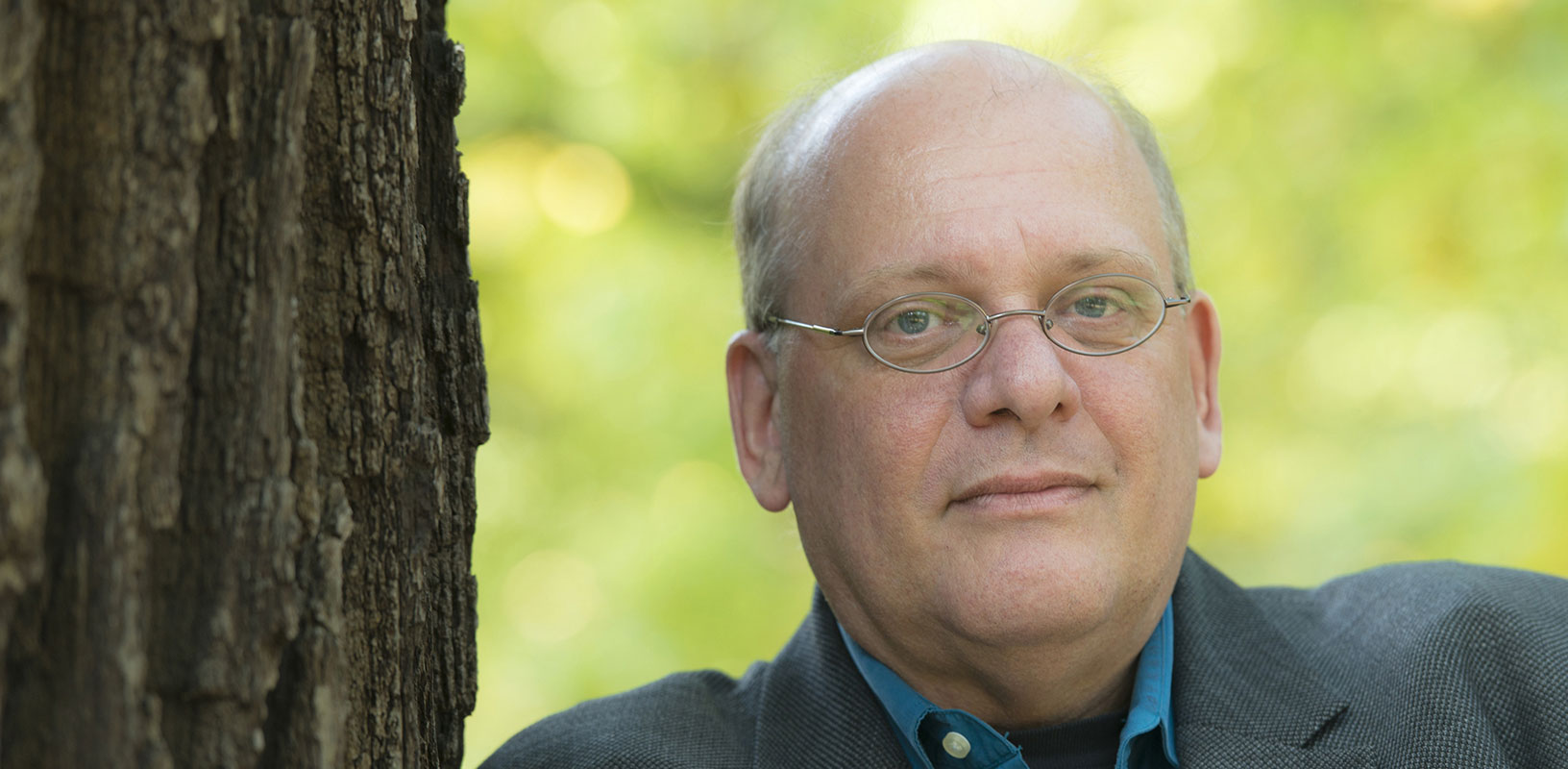Detlev Glanert: UK premiere of Prague Symphony with Semyon Bychkov

Following successful performances in Prague, Amsterdam and Leipzig, Detlev Glanert’s new Kafka-inspired song-symphony reaches London’s Barbican on 24 November with the BBC Symphony Orchestra.
After a series of pandemic-related delays, Detlev Glanert’s Prague Symphony has been travelling around Europe under the baton of Semyon Bychkov, a great champion of the composer. This 45-minute song-symphony, setting texts by Frank Kafka, was premiered appropriately in the city of Prague by the Czech Philharmonic, has journeyed to Amsterdam and Leipzig, and reaches London on 24 November. Bychkov is once again on the rostrum at the Barbican at the helm of the BBC Symphony Orchestra, with mezzo Catriona Morison and baritone Christian Immler who both sang at the premiere.
The genesis of this fourth symphony by Glanert grew from a proposal by Semyon Bychkov that the work should focus on the city of Prague. The composer describes how “it soon became clear that the project should centre on Franz Kafka, who is so important culturally for Prague and was unique in combining Czech, German and Jewish traditions. He is an absolute master of German literary style – perhaps this is under-appreciated in countries where his works are largely known in translation – and everything is wrought with precision and craftsmanship.”
“I was determined to dismiss the idea that Kafka is always dark, dealing only with alienation and claustrophobia. This may come over in his best-known books but there is definitely a lyrical side revealed in his poetry. And there are accounts that he was an elegant and light-hearted man, often bursting into laughter. Kafka works a lot with fantasy pictures and situations which grab the opera composer in me. I can immediately sense and smell how they can be turned into music.”
> Read the full interview with Detlev Glanert
> Visit the Barbican website
“Detlev Glanert's Prague Symphony proves to be an astonishingly fluid, subtle yet attention-grabbing structure which sees two well-balanced soloists fully engaged… One immediately notices that Glanert is an accomplished, successful opera composer who knows how to support the variety of written texts in order to make them blossom effectively. This results in a roughly three-movement symphonic progression, with perceptible echoes of similar works by Alexander von Zemlinsky or Dmitri Shostakovich. Gradually, a life curve of emotions emerges: euphoria, togetherness, isolation, depression, dying; the vocal expressions of woman and man merging into one personality. And the Kafka lines, which are never typical of the locality, offer a very universal, always touching sonic face. It is as analytical as it is emphatic, as roughing of sensibilities as it is emotional. Let’s welcome repeated hearings!”
Die Welt
“Twelve tightly linked songs – or more accurately, short texts compiled and recast as fierce vocals – are sung by a bass-baritone and mezzo-soprano, with orchestral backing that ranges from violent outbursts to quiet contemplation… an interior duologue depicting the pain of being human. With a score that closely mirrors the libretto, it’s an unsettling but thrilling journey to the dawn of the modern era, bold and unpredictable, like a wild animal let loose… Glanert is a master of orchestration, and highly inventive in creating atmospherics.”
Backtrack
“…there is no denying that Glanert is a skilled opera composer, and his symphony has momentum and many internal contrasts. The music completes the words in an interesting and often sonorous way, and the image of Kafka as a prophet of 20th century events gradually emerges before us. The work consists of twelve movements following each other without interruption, with several short orchestral interludes. The individual movements are often composed of multiple texts (poems from letters to Oskar Pollak, Minza Eisner, Hedwig Weiler, Max Brod, fragments from diaries and eight-volume notebooks, as well as from the novel The Castle and the short stories Description of a Struggle and The Gracchus Hunter)… a Prague Symphony about Prague Germans in the 20th century.”
Harmonie
“This ingenious composition, drawing upon excerpts from letters, short stories, novels, notes in notebooks, creates a new story, spun from ideas, dreams, images, which is imbued with a decadent dreamlike atmosphere… the composer uses the instrumentation of the ensemble with great imagination, creating impressive combinations and colours. Ghostly moods, oppressive tremolo, grotesquely distorted motifs alternate with waves of epic breadth and tense dynamics. The music speaks and tells… Semyon Bychkov conducted flexibly and with inspiration, and the rhythmic precision and his excellent stage presence greatly benefited this modern piece. I think the Prague Symphony could become an important work of the world repertoire.”
OperaPlus
The New Year introduces two major new works by Detlev Glanert. Johannes Moser is soloist in Glanert’s cello concerto, premiered on 19 January by the Orchestre Philharmonique du Luxembourg under Gustavo Gimeno. The work travels for its German premiere to the Cologne Philharmonie with the same artists on 21 January, and its North American premiere is with the Toronto Symphony Orchestra under Osmo Vänskä on 27 March. The world premiere of Glanert’s latest opera, The Jewish woman of Toledo, based on Franz Grillparzer’s classic tale opens at the Semperoper in Dresden on 10 Feb. The six performances are staged by Robert Carsen and conducted by Jonathan Darlington, with Christoph Pohl and Heidi Sober in the lead roles of the Spanish King Alfonso VIII and his Jewish mistress Rahel.
> Further information on Work: Prager Sinfonie. Lyrische Fragmente nach Franz Kafka (Sinfonie Nr. 4)
Photo: Bettina Stoess
